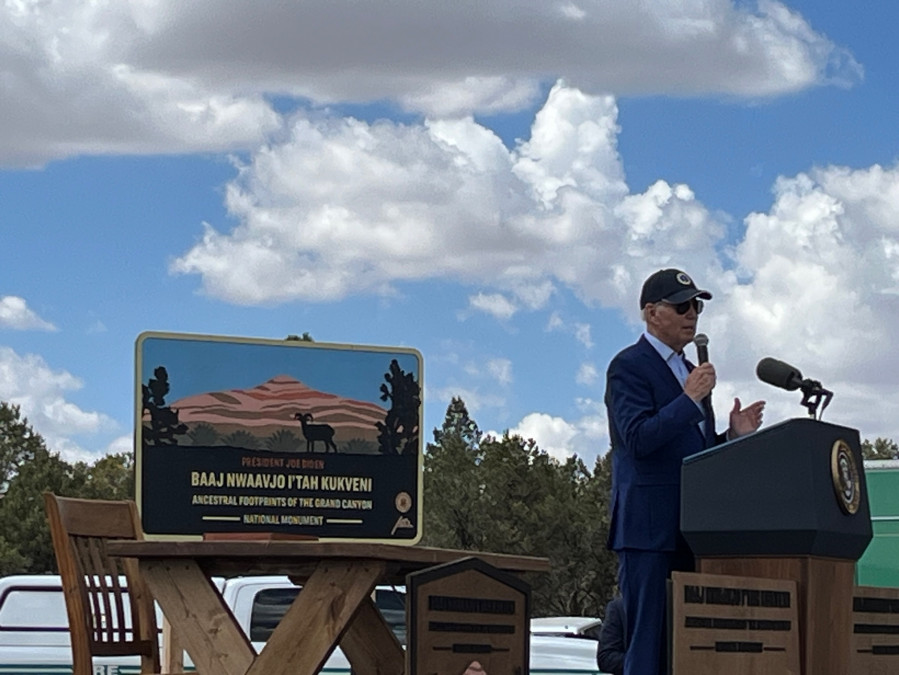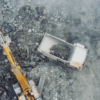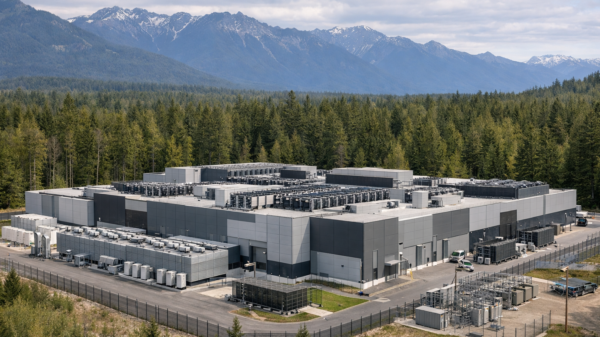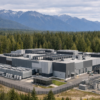Republicans in Arizona are mobilizing against the creation of a new national monument near the Grand Canyon designed to protect the land from uranium mining interests, and give Native Americans some decision-making power in how the land is used.
Arizona State President Warren Petersen and House Speaker Ben Toma said on Tuesday in a lawsuit filed in U.S. District Court that President Joe Biden lacked the power to create the national monument and its creation actually harms the state and affected communities. They are asking the court to set aside the monument’s designation.
The monument is called Baaj Nwaavjo I’tah Kukveni — Ancestral Footprints. It’s come about at the tail end of a proclamation Biden ordered in August. It’s over 900,000 acres long and surrounds the Grand Canyon in Mohave and Coconino counties.
The contested areas bear ancestral importance for the Navajo Nation, Hopi tribe, Ute Indian tribe, Ute Mountain Ute tribe, and the Zuni Pueblo. The previous administration decided to open up the region to drilling and mining, which directly prompted these actions.
Biden also imposed a 20-year prohibition on drilling near New Mexico’s Chaco Canyon, a site of historical significance among Native American communities and one of the oldest in the nation.
The monument’s boundaries, encompassing three distinct sectors to the south, northeast, and northwest of the Grand Canyon National Park, are delineated by landmarks like the Kanab watershed boundary, Kanab Creek drainage to the northwest, the Havasupai Indian Reservation, and Navajo Nation to the south, stretching from Marble Canyon to the edge of the Kaibab Plateau on the northeast side.
Read more: ATHA Energy to acquire Latitude Uranium and 92 Energy, creating industry’s largest uranium portfolio
Read more: ATHA Energy increases private placement offering up to $22.84M
Tried to ban uranium mining in Grand Canyon unsuccessfully before
The creation of the monument received broad support from Native tribes, who consider the land around the Grand Canyon sacred, as well as from lawmakers like U.S. Senators Mark Kelly and Kyrsten Sinema, Republicans Ruben Gallego and Raul Grijalva from Coconino County and the city of Flagstaff.
However, in the lawsuit, Republicans Petersen and Toma, along with others allege that the monument should lose its designation. They argue that Biden lacked the power to create the act using the Antiquities Act.
Lawmakers in the U.S. Congress have made multiple attempts to ban uranium mining in the area since rising uranium prices in the early 2000’s sparked interest in mining the Grand Canyon. So far none have succeeded.
In 2012, the Secretary of the Interior revoked mining availability on more than 1 million acres surrounding the Grand Canyon for the next 20 years. The monument declaration makes that mining prohibition permanent for much of the same area. The monument designation does not include private and state-owned lands within the area.
If the court sides with the Republicans, it would free the land for new economic activity after 2032.
“This federal confiscation promises to wreak havoc on our local and state economies, jeopardize the livelihoods of our citizens, and compromise national security, all in an attempt to score cheap political points with radical environmentalists,” Petersen said in a statement.
“Biden’s manoeuvre is incredibly disingenuous, as it has nothing to do with protecting actual artifacts. Instead, it aims to halt all mining, ranching, and other local uses of federal lands that are critical to our energy independence from adversary foreign nations, our food supply, and the strength of our economy.”
Read more: Biden permanently bans uranium mining in Grand Canyon
Read more: Canadian GoldCamps to earn 70% of Murphy Lake for $10M
Uranium mining prohibition will jeopardize energy independence
Justin Smith, the Missouri attorney representing the plaintiffs in the suit, alleges that the Antiquities Act is meant to be used for the creation of monuments to protect small historical landmarks on federal land, not a vast area spanning almost 1 million acres. He argues that Congress has the sole power to declare most federal land designations. These include creating national parks, national forests, and national conservation areas.
Biden’s proclamation established a commission to offer guidance on managing the monument, which included representatives from tribes with ancestral ties to the area.
Smith asserts that the monument designation will negatively impact the economies of Mohave County and the town of Fredonia. This impact includes the loss of uranium mining jobs and reduced economic activity, leading to decreased tax revenue.
The proclamation prohibits further use and development of the land, especially for important natural resources like uranium. According to Smith, these could produce financial benefit for Arizona’s state and local governments and schools.
The lawsuit contends that the prohibition on uranium mining inside the monument will jeopardize U.S. energy independence.
As of 2020, about 16 per cent of the country’s uranium came from Russia, while 22 per cent came from Canada and another 22 per cent came from Kazakhstan.
Making matters worse is that the House of Representatives recently passed a motion to stop getting their uranium from Russia. Additionally, Kazatomprom, the leading producer in Kazakhstan, is experiencing supply chain issues of their own.
There is little mining of uranium in America because it is not profitable. However, Republicans during Donald Trump’s presidency urged the federal government to subsidize uranium mining here and around the country.
.
Follow Joseph Morton on Twitter
joseph@mugglehead.com













